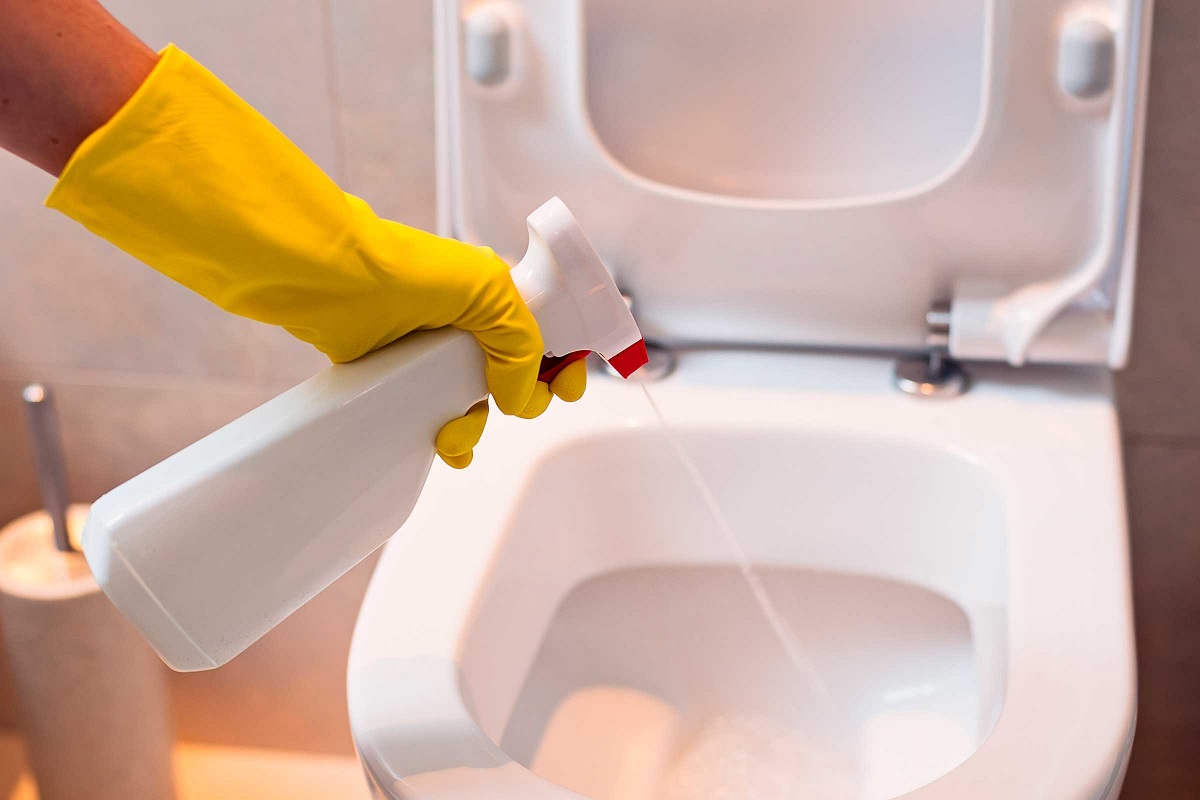

Articles
How To Clean A Toilet With Bleach
Modified: October 20, 2024
Learn how to clean your toilet effectively with bleach in this informative article. Discover useful tips and tricks to maintain a hygienic bathroom.
(Many of the links in this article redirect to a specific reviewed product. Your purchase of these products through affiliate links helps to generate commission for Storables.com, at no extra cost. Learn more)
Introduction
Keeping a clean and sanitary toilet is crucial for maintaining a healthy home environment. One of the most effective ways to clean a toilet is by using bleach. Bleach is a powerful disinfectant that can kill harmful bacteria and viruses, leaving your toilet sparkling clean and free of germs.
In this article, we will guide you through the steps of cleaning a toilet with bleach. We will also provide some safety precautions to follow before you begin the cleaning process. By following our instructions, you can ensure that your toilet remains not only clean but also safe for use by your family and guests.
It’s worth mentioning that bleach should be used responsibly and in accordance with the instructions on the product label. Always wear appropriate protective gear, such as gloves and goggles, to ensure your safety while cleaning with bleach.
So, let’s get started and learn how to effectively clean your toilet using bleach!
Key Takeaways:
- Safety First! Before cleaning your toilet with bleach, prioritize safety by wearing protective gear, ventilating the area, and following the product instructions. This ensures a safe and effective cleaning process for a sparkling, germ-free toilet.
- Beyond Bleach. In addition to using bleach, consider incorporating regular cleaning, toilet bowl cleaner, and eco-friendly products to maintain a clean and fresh toilet. These tips help prevent stains, odors, and bacteria buildup, ensuring a hygienic bathroom environment.
Read more: How To Clean Bath Toys With Bleach
Safety Precautions Before Cleaning
Before you begin cleaning your toilet with bleach, it is important to take some safety precautions to protect yourself and others in the vicinity. Bleach is a strong chemical that can be harmful if not used properly. Follow these safety guidelines to ensure a safe cleaning process:
- Read and follow the instructions: Before using bleach, carefully read and understand the instructions on the product label. Different bleach products may have varying concentrations and application methods.
- Wear protective gear: Put on protective gear, such as gloves and goggles, before handling bleach. This will prevent direct contact with the chemical and safeguard your skin and eyes.
- Ventilate the area: Ensure proper ventilation by opening windows or using an exhaust fan. Bleach fumes can be strong and potentially irritating, so it’s important to have fresh air circulating during the cleaning process.
- Keep children and pets away: As bleach is a toxic substance, it’s crucial to keep children and pets out of the cleaning area. Store bleach in a safe place, out of reach of young children.
- Never mix bleach with other cleaning chemicals: Mixing bleach with other cleaning products, such as ammonia or vinegar, can produce toxic fumes. Always use bleach on its own and avoid any potential chemical reactions.
- Test for colorfastness: Before applying bleach to any surfaces, test for colorfastness by applying a small amount of bleach to an inconspicuous area. This ensures that the bleach won’t cause any damage or discoloration.
- Follow proper disposal methods: After use, dispose of any leftover bleach and empty containers according to local regulations. Never pour bleach down the drain or toilet without diluting it first.
- Store bleach safely: Store bleach in a cool, dry place away from direct sunlight and out of reach of children. Make sure the container is tightly sealed to prevent leaks or spills.
By following these safety precautions, you can minimize the risks associated with using bleach and ensure a safe cleaning process. Now that you understand the necessary safety measures, let’s move on to the steps for cleaning your toilet with bleach.
Step 1: Gather Your Supplies
Before you begin cleaning your toilet with bleach, gather all the necessary supplies. Having everything on hand will make the cleaning process more efficient. Here”s a list of the supplies you will need:
- Bleach: Choose a bleach product that is specifically formulated for cleaning purposes. Look for bleach that contains sodium hypochlorite, which is effective in disinfecting and removing stains.
- Gloves: Wear rubber gloves to protect your hands from the bleach, especially if you have sensitive skin. Gloves also provide a barrier against any germs or bacteria on the toilet surfaces.
- Goggles or safety glasses: Protect your eyes from potential splashes or splatters of bleach by wearing goggles or safety glasses. This is especially important when scrubbing or applying bleach to the toilet bowl.
- Toilet brush: Use a toilet brush with stiff bristles to scrub the toilet bowl. Look for a brush with a long handle to reach the inside of the bowl more easily.
- Microfiber cloth or sponge: Have a microfiber cloth or sponge ready for wiping down and cleaning the exterior surfaces of the toilet, as well as for drying and polishing after cleaning.
- Bucket of water: Fill a bucket with water to rinse the toilet bowl and other surfaces during the cleaning process.
- All-purpose cleaner (optional): If you prefer, you can use an all-purpose cleaner in conjunction with bleach to tackle tough stains or buildup on the toilet surfaces. Make sure the cleaner is safe to use with bleach.
- Old toothbrush (optional): An old toothbrush can be handy for reaching difficult-to-clean areas, such as around the hinges of the toilet seat or inside the flushing mechanism.
Once you have gathered all the necessary supplies, you are ready to move on to the next step: preparing the area before cleaning the toilet with bleach.
Step 2: Prepare the Area
Preparing the area before cleaning your toilet with bleach is essential for a smooth and efficient cleaning process. Follow these steps to ensure you have a clean and organized workspace:
- Clear any items: Remove any items or personal belongings from the toilet area. This includes toilet paper holders, mats, rugs, or any decorative items that may get in the way during the cleaning process.
- Put on your protective gear: Before you begin cleaning, put on your gloves and goggles to protect yourself from the bleach and any potential splashes.
- Open the windows or use ventilation: To minimize the strong odor of bleach and to provide fresh air circulation, open the windows in the bathroom. If there are no windows, use a fan or turn on the exhaust vent to ensure proper ventilation.
- Flush the toilet: Give the toilet a quick flush to moisten the surfaces and prepare them for cleaning.
- Prep your cleaning solutions: If you plan to use an all-purpose cleaner in addition to bleach, mix the cleaner according to the instructions on the product label. Follow the recommended ratio of cleaner to water for maximum effectiveness.
By preparing the area beforehand, you will have a clear and clean workspace to efficiently clean your toilet with bleach. Now that you have everything ready, it’s time to move on to the next step: applying bleach to the toilet bowl.
Step 3: Apply Bleach to the Toilet Bowl
Now that you have prepared the area, it’s time to start applying bleach to the toilet bowl. This step focuses on disinfecting and removing stains from the inside of the bowl. Follow these steps for an effective application:
- Pour bleach into the bowl: Carefully pour bleach around the inside of the toilet bowl. Aim for the areas under the rim and around the bowl where stains and bacteria tend to accumulate. Use about 1/2 to 1 cup of bleach for an average-sized toilet bowl.
- Distribute bleach with the brush: Use the toilet brush to swish the bleach around the bowl, ensuring that it reaches all the surfaces. Focus on scrubbing the stains and areas with discoloration. Make sure to scrub under the rim and around the waterline as well.
- Let the bleach sit: Allow the bleach to sit in the toilet bowl for about 15 to 30 minutes. This will allow the bleach to penetrate and disinfect the surfaces effectively. During this time, you can move on to cleaning other parts of the toilet, such as the seat and lid.
- Flush the toilet: After the bleach has had time to work, flush the toilet to rinse away the bleach and any loosened stains. This will also help to remove any bleach residue from the bowl.
Remember to be cautious while handling bleach and avoid splashing it onto your clothing or skin. Always use proper protective gear and follow the manufacturer’s instructions for safe use.
With the bleach applied and the toilet bowl disinfected, you can now proceed to the next step: scrubbing the toilet bowl to remove any remaining stains and residue.
Read more: How To Bleach Sink
Step 4: Scrub the Toilet Bowl
After applying bleach and allowing it to sit for a while, it’s time to scrub the toilet bowl and remove any remaining stains or residue. Follow these steps for effective scrubbing:
- Use the toilet brush: Start by using the toilet brush to scrub the inside of the toilet bowl. Scrub vigorously in a circular motion, paying extra attention to areas with stains or discoloration.
- Focus on the waterline and under the rim: Pay special attention to the waterline and the area under the rim, as these are common areas where stains and bacteria can accumulate. Use the bristles of the brush to reach these areas and scrub thoroughly.
- Apply more bleach if needed: If you encounter stubborn stains or discoloration, apply more bleach to the affected areas. Let it sit for a few minutes before scrubbing again.
- Scrub the trapway and jet holes: Don’t forget to clean the trapway and jet holes located at the bottom of the toilet bowl. These areas can accumulate debris and build-up over time. Use the toilet brush or an old toothbrush to clean them.
- Rinse the brush: Periodically rinse the toilet brush in clean water to remove any bleach or residue that may have accumulated on the bristles.
- Continue scrubbing until clean: Keep scrubbing the toilet bowl until no more stains or residue are visible. It may take some time and effort, but the end result will be a sparkling clean toilet bowl.
Remember, maintaining a clean toilet bowl not only improves the appearance of your bathroom but also helps to prevent the growth of bacteria and eliminate odors. Once you are satisfied with the cleanliness of the toilet bowl, move on to the next step: cleaning the toilet seat and lid.
To effectively clean a toilet with bleach, pour 1 cup of bleach into the bowl, let it sit for 10 minutes, then scrub with a toilet brush and flush. Be sure to ventilate the area and wear gloves for safety.
Step 5: Clean the Toilet Seat and Lid
Now that you have scrubbed and cleaned the toilet bowl, it’s time to focus on the toilet seat and lid. These areas can harbor bacteria and dirt, so it’s essential to give them a thorough cleaning. Follow these steps to clean the toilet seat and lid effectively:
- Wipe down the surfaces: Start by using a clean, damp microfiber cloth or sponge to wipe down the surfaces of the toilet seat and lid. This will help to remove any surface dirt or debris.
- Apply a cleaning solution: If desired, you can apply an all-purpose cleaner to the cloth or sponge. Make sure the cleaner is safe to use on the material of your toilet seat and lid. Follow the instructions on the cleaner label for the best results.
- Scrub the seat and lid: Use the cloth or sponge to scrub the toilet seat and lid thoroughly. Pay attention to any stains or spots and scrub until they are removed. Take care not to scratch or damage the surface with abrasive scrubbing.
- Pay attention to hinges and crevices: Don’t forget to clean the hinges and any crevices on the toilet seat and lid. These areas can accumulate dirt and grime over time. Use an old toothbrush or a small scrub brush to clean these hard-to-reach areas.
- Rinse with clean water: Once you have finished scrubbing, rinse the cloth or sponge with clean water and use it to wipe away any remaining cleaner or residue from the toilet seat and lid.
- Dry the surfaces: Finally, use a dry microfiber cloth or towel to dry the toilet seat and lid thoroughly. This will prevent water spots and help leave them looking clean and polished.
By ensuring that the toilet seat and lid are clean and free of bacteria, you can maintain a hygienic and inviting bathroom environment for you and your family. Once you have completed this step, it”s time to move on to cleaning the toilet tank.
Step 6: Clean the Toilet Tank
While the toilet tank may often go unnoticed during regular cleaning, it is still an essential part of maintaining a clean and hygienic toilet. Cleaning the toilet tank can help remove any build-up, sediment, or bacteria that may affect the performance and cleanliness of your toilet. Follow these steps to effectively clean the toilet tank:
- Turn off the water supply: Locate the water shut-off valve behind or near the toilet and turn it clockwise to shut off the water supply. This will prevent any water from entering the tank while you are cleaning.
- Remove the tank lid: Carefully lift the toilet tank lid and set it aside on a clean and safe surface. Be cautious as the lid may be heavy and fragile.
- Inspect the tank: Take a moment to inspect the inside of the tank for any signs of mold, mildew, or residue. It’s important to address any issues to maintain a clean and efficient toilet.
- Flush the toilet: With the water supply turned off, flush the toilet to drain any remaining water in the tank. Hold down the flush lever until all the water has been emptied from the tank.
- Clean the tank walls and components: Use a mild cleaning solution or a mixture of vinegar and water to clean the inside walls of the tank. Use a cloth or sponge to scrub away any build-up or stains. Pay particular attention to the corners and hard-to-reach areas.
- Scrub the toilet tank components: Remove any removable components, such as the flapper or float, and clean them in a solution of vinegar and water. Use a brush or cloth to remove any debris or mineral deposits. Rinse them thoroughly before placing them back in the tank.
- Rinse the tank: Once you have scrubbed the tank walls and components, use a bucket of clean water to rinse away any remaining cleaning solution or residue.
- Replace the tank lid and turn on the water supply: Once the tank is clean and rinsed, carefully place the tank lid back in its original position. Turn on the water supply by turning the shut-off valve counterclockwise. Allow the tank to refill completely.
By incorporating the cleaning of the toilet tank into your regular cleaning routine, you can help maintain the overall cleanliness and functionality of your toilet. Now that the tank is clean, let’s move on to the next step: rinsing and disinfecting the toilet.
Step 7: Rinse and Disinfect
Once you have completed the cleaning process for the toilet bowl, seat, lid, and tank, it’s important to thoroughly rinse and disinfect all the surfaces to ensure a hygienic and germ-free environment. Follow these steps to effectively rinse and disinfect your toilet:
- Flush the toilet: Flush the toilet to ensure that all the cleaning solution and residue have been removed from the bowl and tank.
- Rinse the toilet bowl: Use clean water from the toilet tank or a bucket to thoroughly rinse the inside of the toilet bowl. This will help remove any remaining traces of cleaning solution or debris.
- Rinse the toilet seat, lid, and tank: Use a clean cloth or sponge soaked in water to rinse all the surfaces of the toilet seat, lid, and tank. Wipe away any residue or cleaning solution, ensuring that all surfaces are clean and free of any cleaning chemicals.
- Apply a disinfectant: Once the toilet surfaces are rinsed, apply a disinfectant to further sanitize and kill any remaining germs or bacteria. Choose a disinfectant spray or wipe that is specifically designed for use on toilet surfaces.
- Follow the instructions: Read and follow the instructions provided on the disinfectant product carefully. Pay attention to the recommended contact time, which is the time the disinfectant needs to remain on the surface to effectively kill germs.
- Apply the disinfectant: Spray or wipe the disinfectant onto the toilet seat, lid, tank, and any other surfaces that come into contact with your hands. Make sure to cover all the areas thoroughly.
- Allow the disinfectant to sit: Leave the disinfectant on the surfaces for the recommended contact time as specified by the product instructions. This will ensure proper disinfection of the toilet.
- Rinse again (optional): If desired, you can rinse the toilet surfaces again with clean water to remove any residual disinfectant. However, many disinfectants are designed for no-rinse applications.
By rinsing and disinfecting the toilet, you can provide an extra level of cleanliness and ensure that your toilet is free from harmful bacteria and germs. Once you have completed this step, it’s time to move on to the final step: drying and polishing the toilet.
Step 8: Dry and Polish the Toilet
After completing all the cleaning and disinfecting steps, it’s important to dry and polish the toilet to give it a final touch and leave it looking clean and presentable. Here’s how you can dry and polish your toilet effectively:
- Use a clean, dry cloth or towel: Choose a clean, lint-free cloth or towel specifically designated for drying purposes. Avoid using a cloth that has been previously used for cleaning, as it may contain residue or cleaning solution.
- Start with the toilet bowl: Begin by using the dry cloth to wipe down the inside of the toilet bowl. Focus on removing any remaining moisture or water droplets to prevent water spots or streaks.
- Move on to the seat, lid, and tank: Continue to dry the toilet seat, lid, and tank using the same cloth. Wipe all surfaces thoroughly to remove any moisture and leave a shine.
- Pay attention to crevices and hard-to-reach areas: Make sure to dry any crevices, hinges, or corners of the toilet seat and lid. Use a smaller cloth or towel and get into the hard-to-reach areas to ensure thorough drying.
- Polish the exterior surfaces: To give your toilet a sparkling finish, use a separate clean and dry cloth to polish the exterior surfaces. Buff the toilet seat, lid, and tank to enhance their appearance and remove any fingerprints or smudges.
- Dispose of the cloth and cleaning materials: After you have finished drying and polishing the toilet, dispose of the cloth and any cleaning materials that were used. This will help maintain cleanliness and prevent cross-contamination.
- Admire and maintain: Take a moment to appreciate your freshly cleaned and polished toilet. To maintain its cleanliness, make it a habit to clean your toilet regularly and address any stains or issues as they arise.
By drying and polishing your toilet, you not only make it look clean and inviting but also help to prevent water spots and streaks. This final step ensures that your efforts in cleaning the toilet are fully complete. With the toilet now dry and polished, you can enjoy a sparkling clean bathroom!
Congratulations! You have successfully cleaned your toilet using bleach and followed each step effectively. Regular maintenance and cleaning will help keep your toilet clean, hygienic, and fresh for everyday use. Now you can relax and enjoy a sanitized and sparkling clean toilet in your home!
Conclusion
Cleaning a toilet may not be the most glamorous task, but it is an essential part of maintaining a clean and healthy home environment. By following the steps outlined in this guide, you can effectively clean your toilet using bleach and ensure that it is free from germs, bacteria, and stains.
Throughout the cleaning process, it’s important to prioritize safety by wearing protective gear, properly ventilating the area, and following the instructions on the bleach product label. Taking these safety precautions will help keep you and your loved ones safe during the cleaning process.
Remember to gather all the necessary supplies, including bleach, gloves, goggles, a toilet brush, and cleaning solutions. Having everything ready beforehand will make the cleaning process more efficient and effective.
Each step of the cleaning process plays a crucial role in achieving a thoroughly clean toilet. From applying bleach to the toilet bowl and scrubbing away stains to disinfecting all the surfaces and finally drying and polishing, every step contributes to a sparkling and hygienic toilet.
By maintaining a clean toilet, you not only promote good hygiene but also create a pleasant and inviting bathroom environment. Regular cleaning and maintenance will help prevent the growth of bacteria, eliminate odors, and ensure the longevity of your toilet.
So, embrace the cleanliness and freshness of a well-maintained toilet by following these step-by-step instructions. With a little effort and dedication, you can enjoy a pristine toilet that provides comfort and peace of mind.
Thank you for reading this guide on how to clean a toilet with bleach. Now, go ahead and put this knowledge into practice to achieve a sparkling clean toilet that will impress your guests and elevate the overall cleanliness of your home.
Additional Tips for Maintaining a Clean Toilet
Keeping your toilet clean is an ongoing process. To maintain its cleanliness and freshness between thorough cleanings, here are some additional tips you can follow:
- Clean regularly: Make it a habit to clean your toilet regularly. Regular cleaning will prevent stubborn stains and build-up from accumulating, making your cleaning sessions more manageable and effective.
- Use toilet bowl cleaner: In addition to regular cleaning with bleach, use a toilet bowl cleaner specifically formulated to tackle stains, mineral deposits, and bacteria. Follow the instructions on the cleaner’s label for the best results.
- Keep a toilet brush handy: Keep a toilet brush near the toilet for quick touch-ups. A quick scrub once or twice a week can keep your toilet looking clean and fresh in between thorough cleanings.
- Use toilet cleaning tablets: Consider using toilet cleaning tablets that can be placed inside the toilet tank. These tablets gradually release cleaning agents with each flush, helping to keep the bowl clean and fresh.
- Watch out for hard water stains: If you live in an area with hard water, you may notice mineral deposits and stains on your toilet surfaces. Use a descaling product specifically designed to remove hard water stains and prevent them from recurring.
- Regularly clean the toilet brush: After each use, rinse and clean the toilet brush thoroughly. You can do this by swishing it back and forth in the toilet bowl or by using a separate bucket with water and disinfectant. Allow the brush to dry completely before placing it back in its holder.
- Wipe down the toilet daily: Consider making it a part of your daily cleaning routine to quickly wipe down the exterior surfaces of the toilet, including the tank, seat, and lid, using a disinfectant wipe or a clean cloth. This will help remove any surface dirt or bacteria.
- Address clogs promptly: If you notice a clog in your toilet, deal with it promptly to prevent overflow and potential damage. Use a plunger to try and dislodge the clog, or consider using a toilet auger for more stubborn obstructions.
- Teach good toilet hygiene: Educate your family members or household members about proper toilet hygiene, including flushing after each use, using the appropriate amount of toilet paper, and avoiding flushing improper items down the toilet.
- Consider using eco-friendly cleaners: If you prefer to use environmentally friendly products, there are several eco-friendly toilet cleaners available. Look for cleaners that are biodegradable and free from harsh chemicals.
By incorporating these additional tips into your toilet maintenance routine, you can ensure that your toilet remains clean, fresh-smelling, and in optimal condition for years to come.
Remember, a clean toilet not only improves the overall cleanliness and hygiene of your home but also contributes to a more pleasant and comfortable bathroom experience for everyone.
So, take these tips to heart and make maintaining a clean toilet a part of your regular cleaning routine. Your efforts will be rewarded with a sparkling and inviting toilet that you can be proud of.
Frequently Asked Questions about How To Clean A Toilet With Bleach
Was this page helpful?
At Storables.com, we guarantee accurate and reliable information. Our content, validated by Expert Board Contributors, is crafted following stringent Editorial Policies. We're committed to providing you with well-researched, expert-backed insights for all your informational needs.
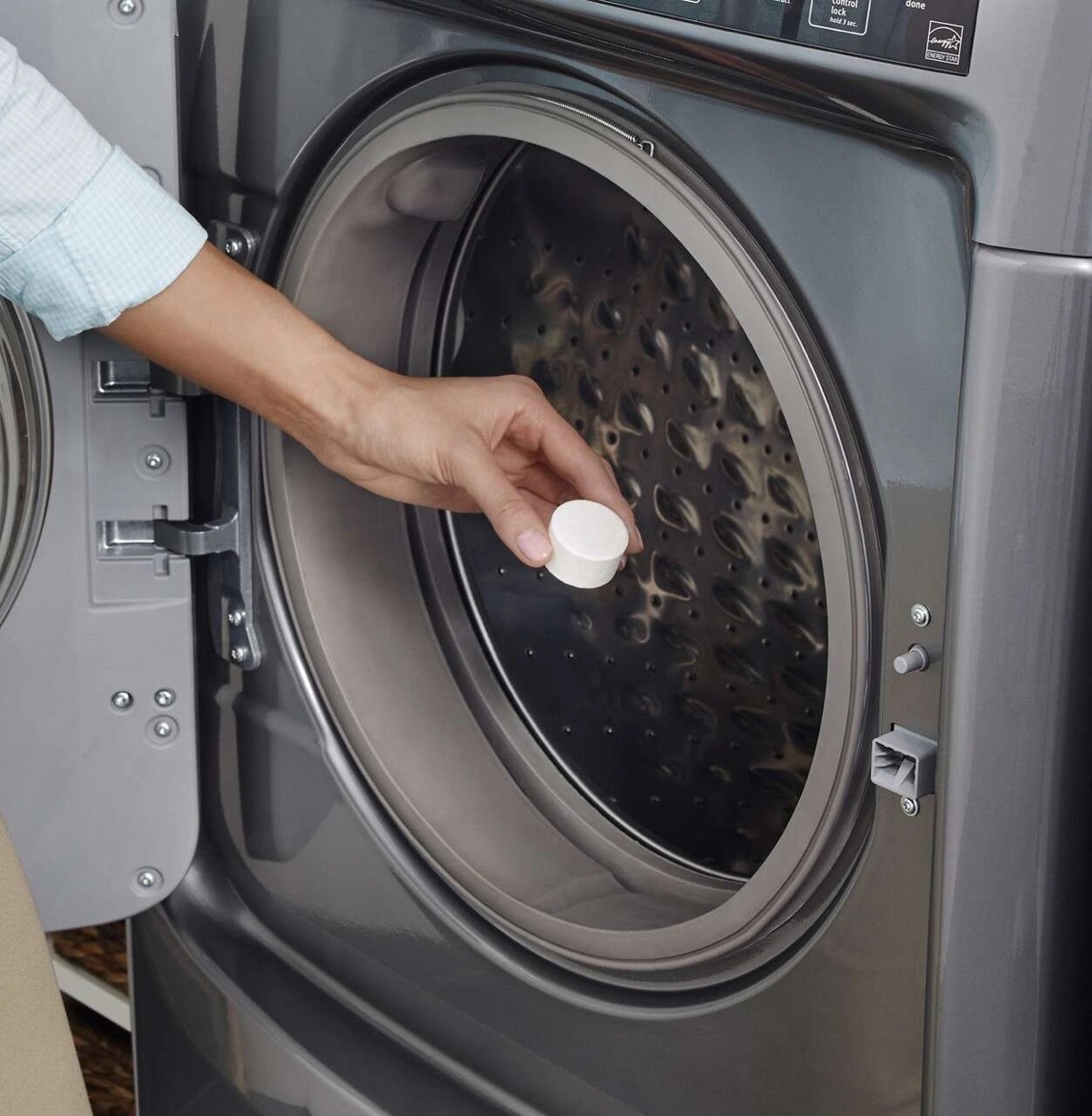
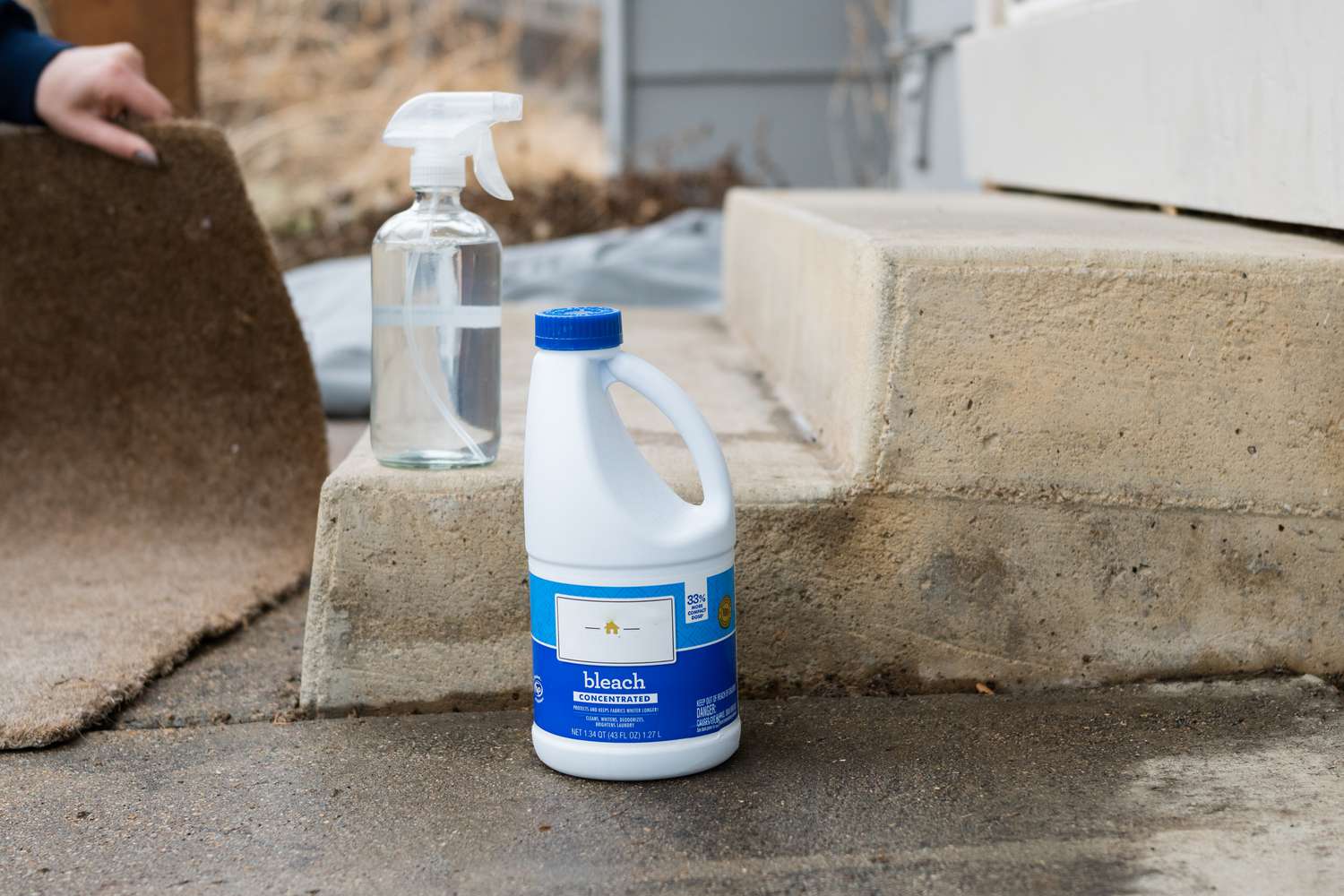
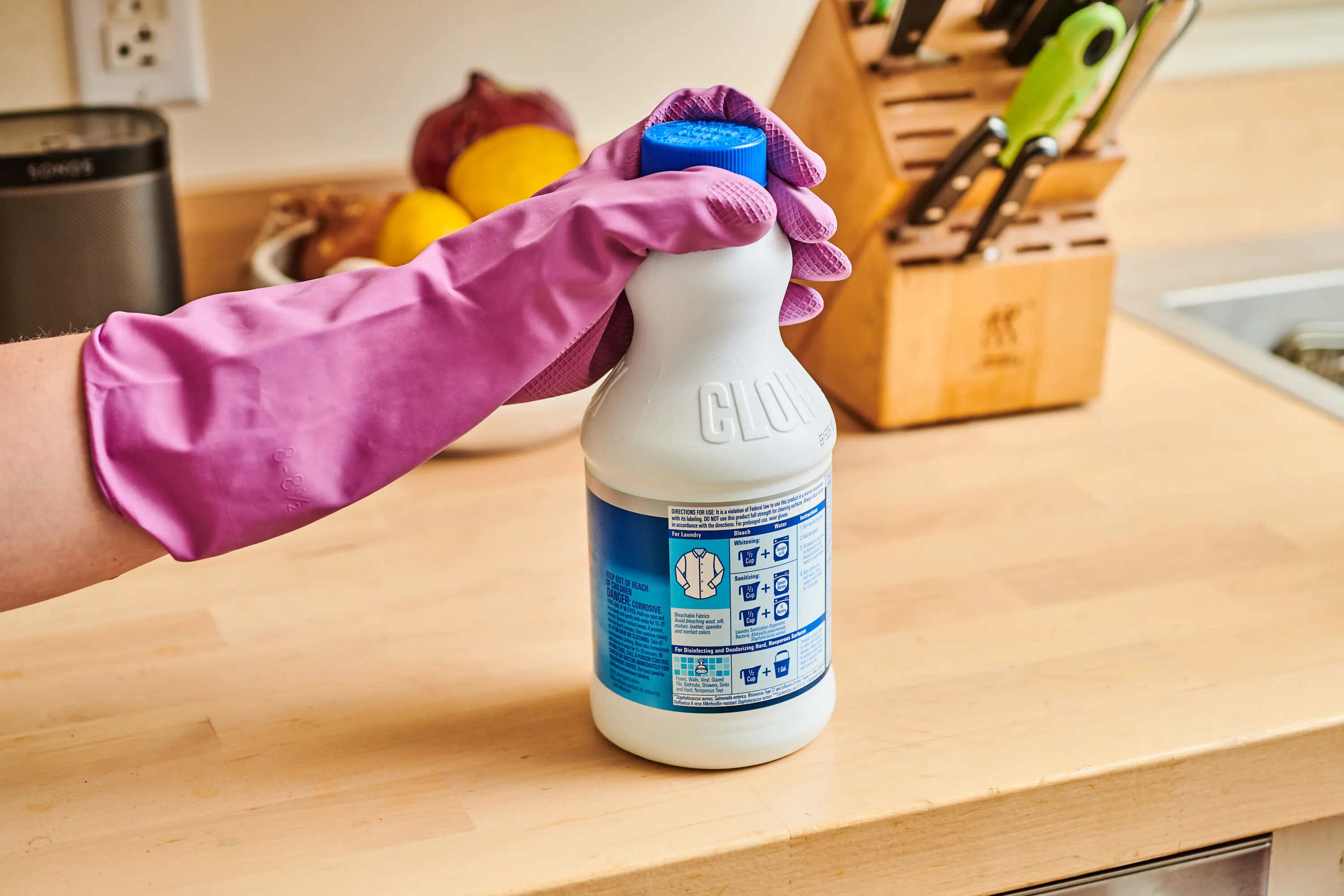
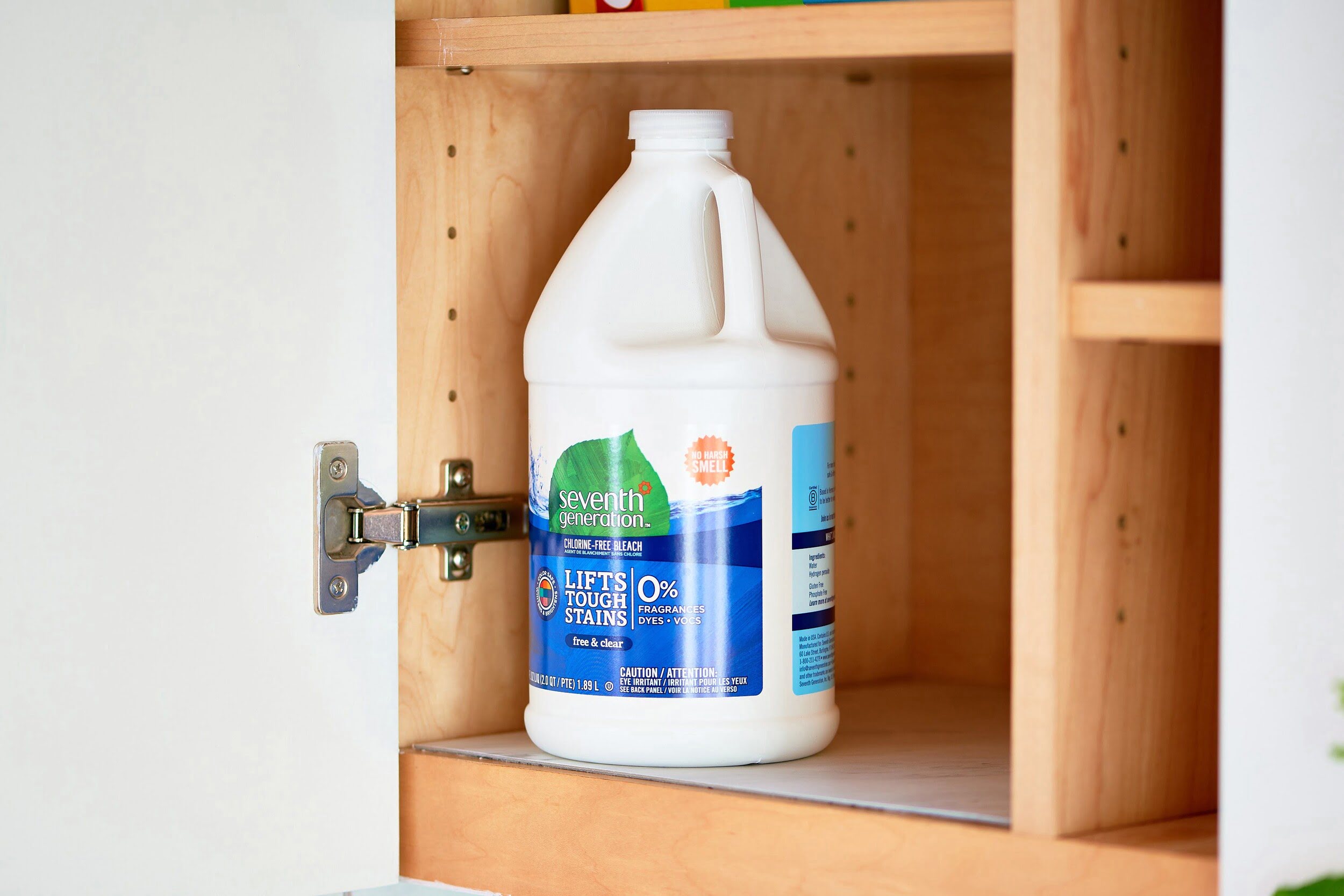
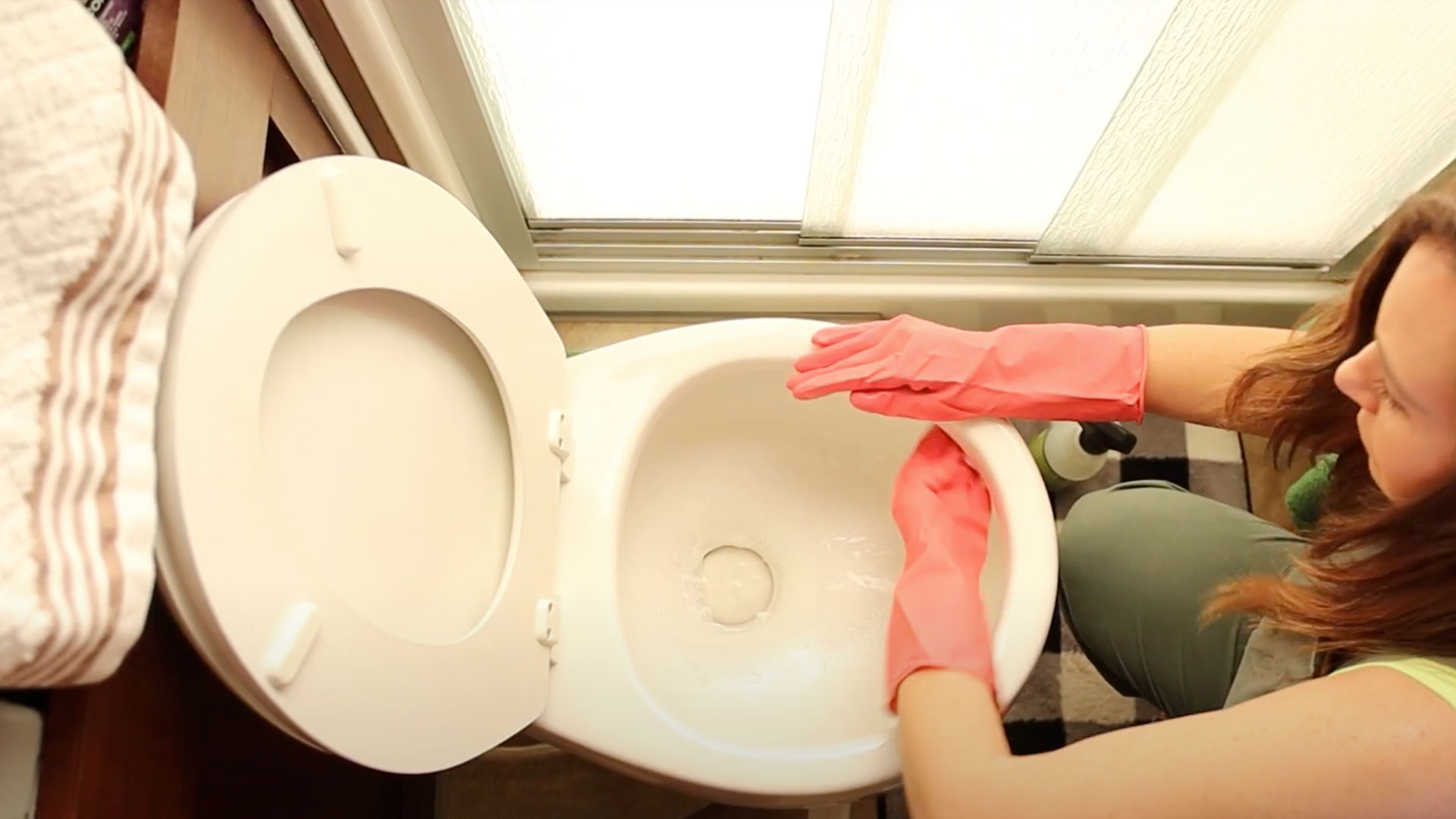
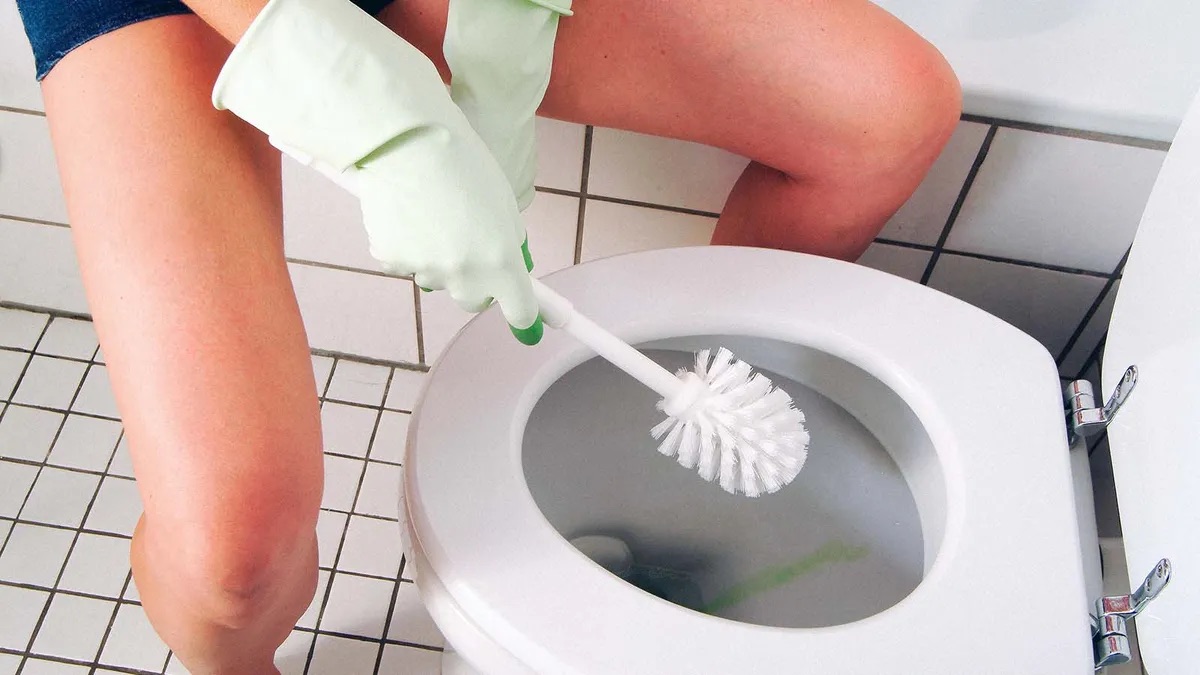
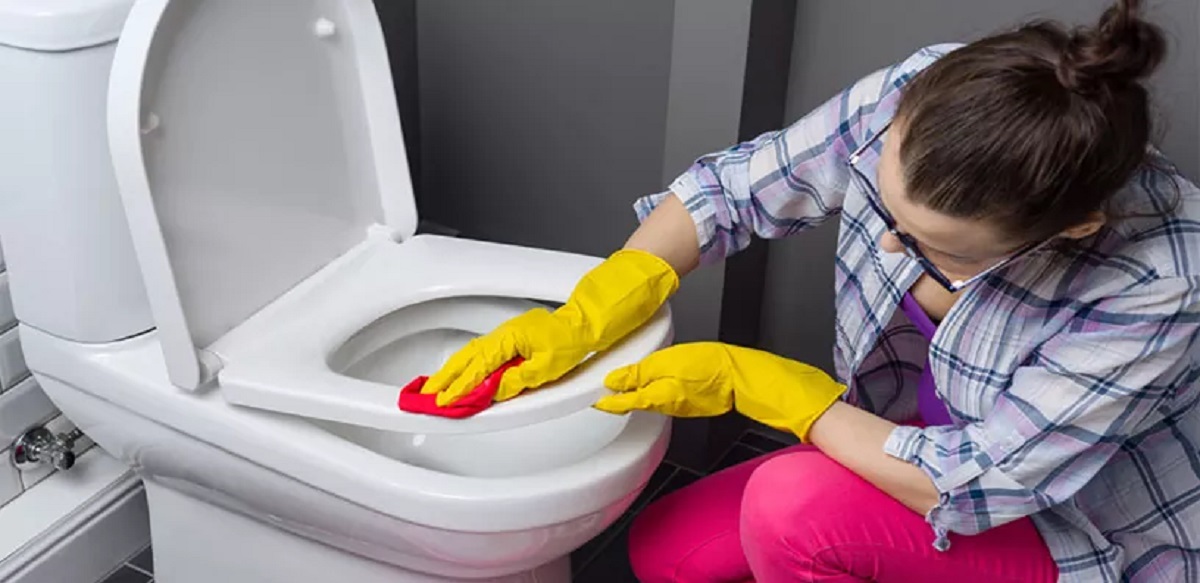
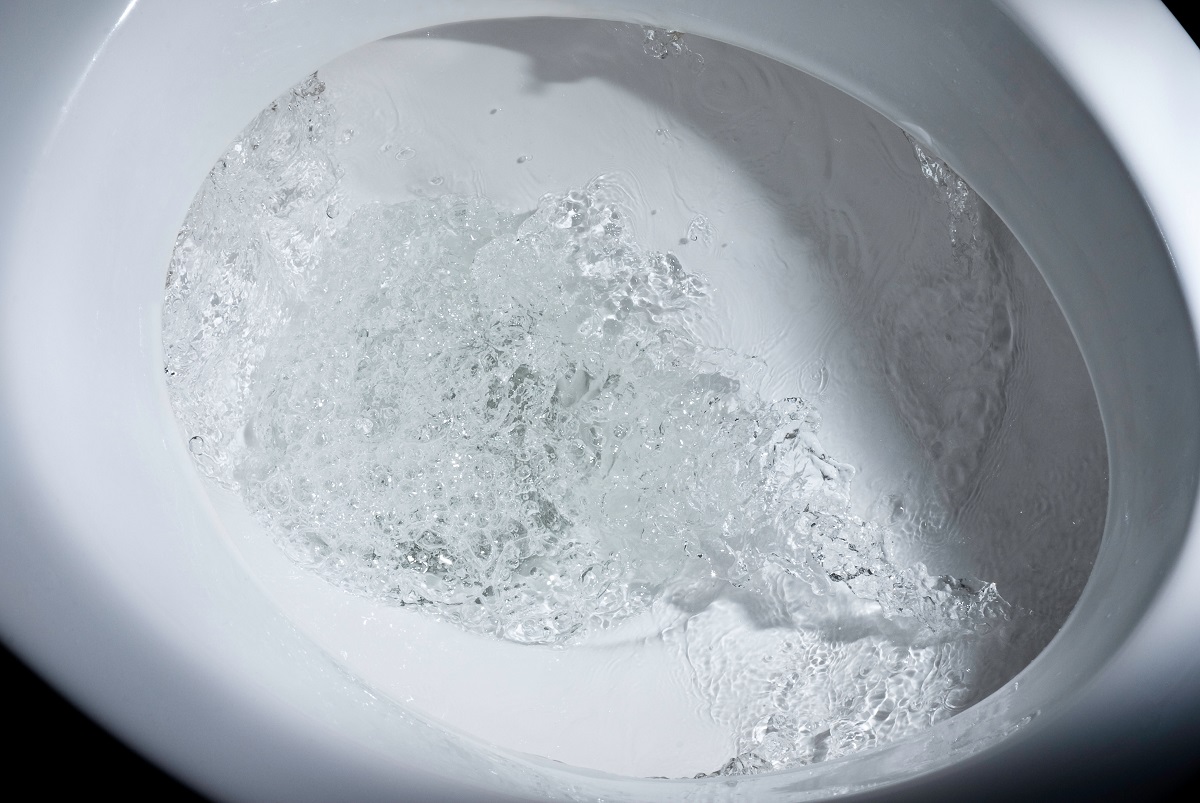
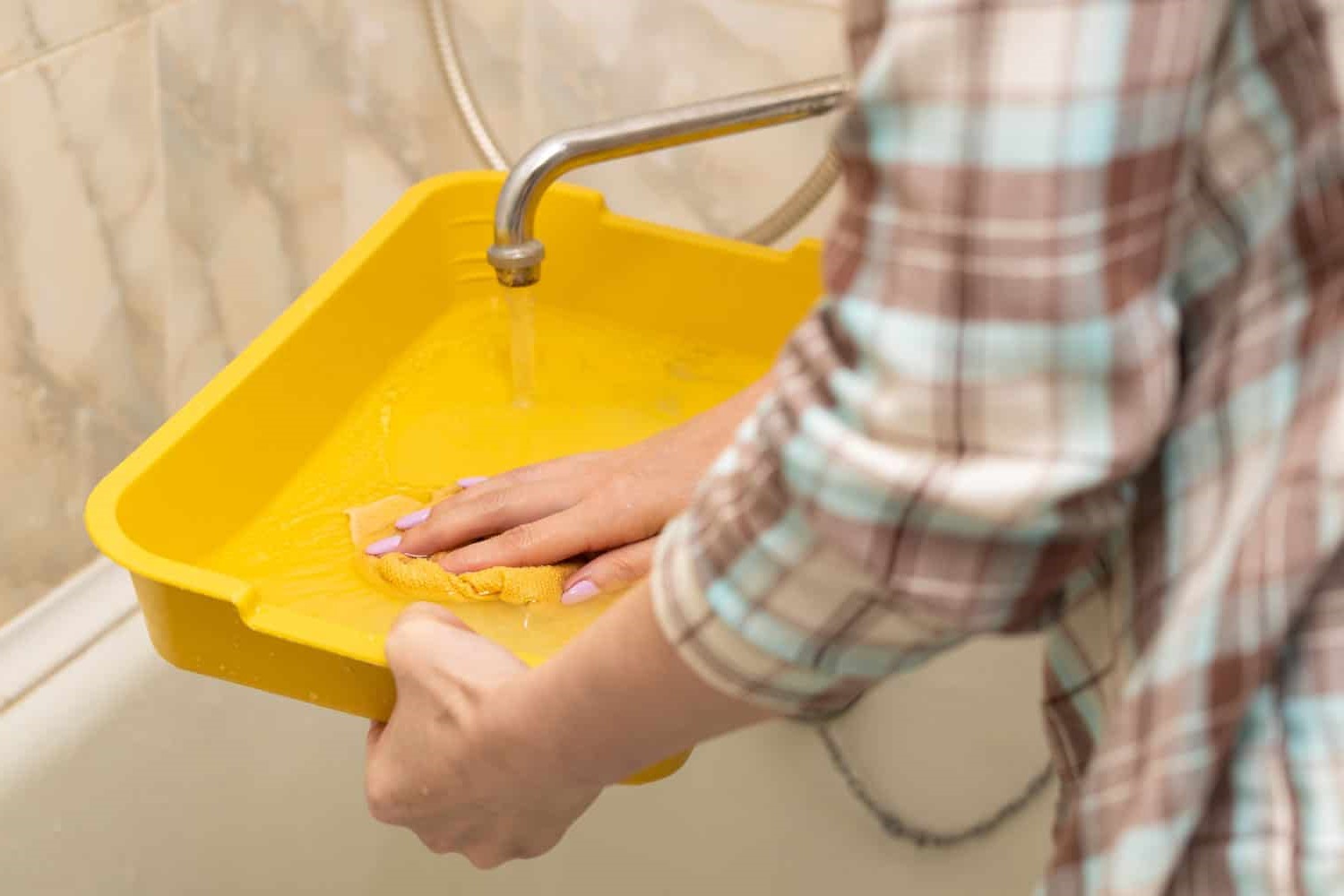
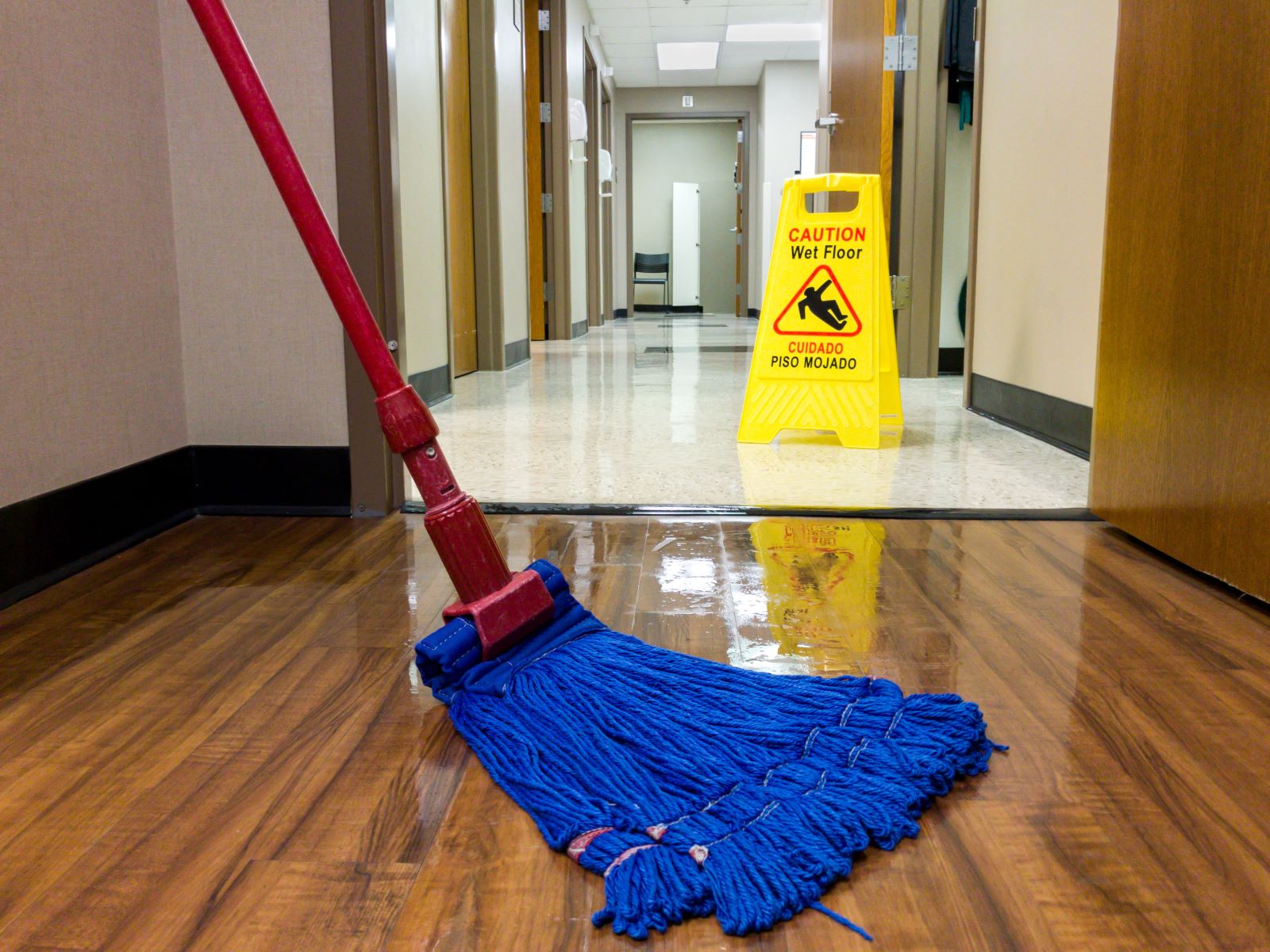
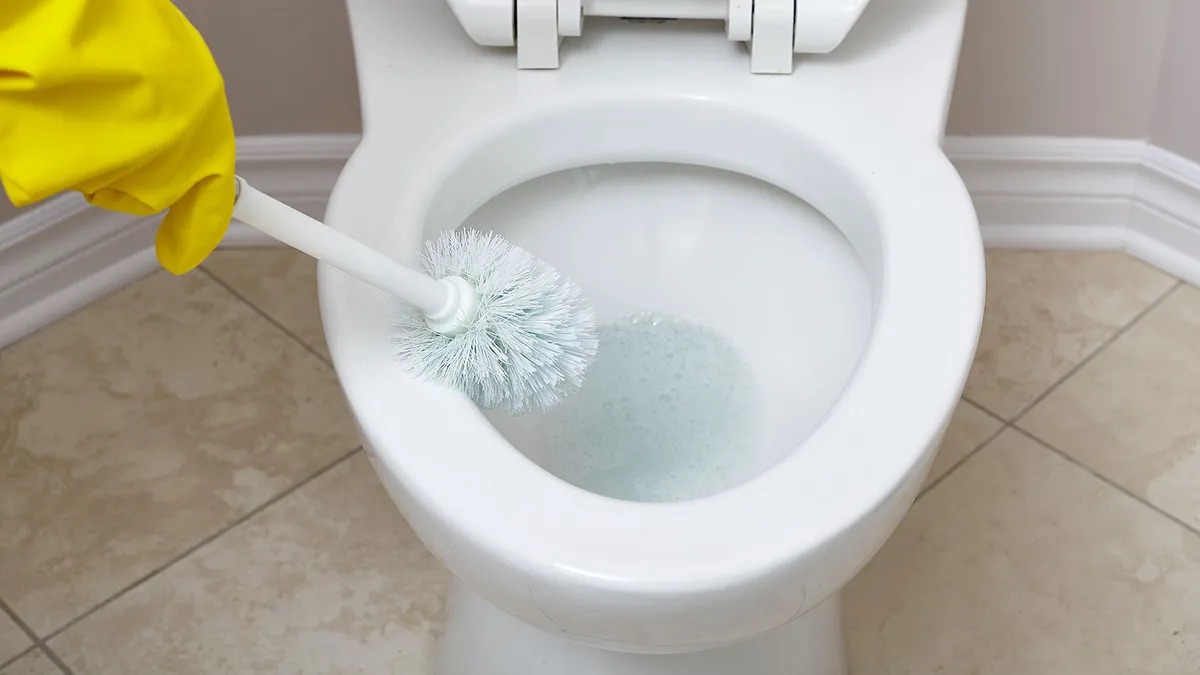
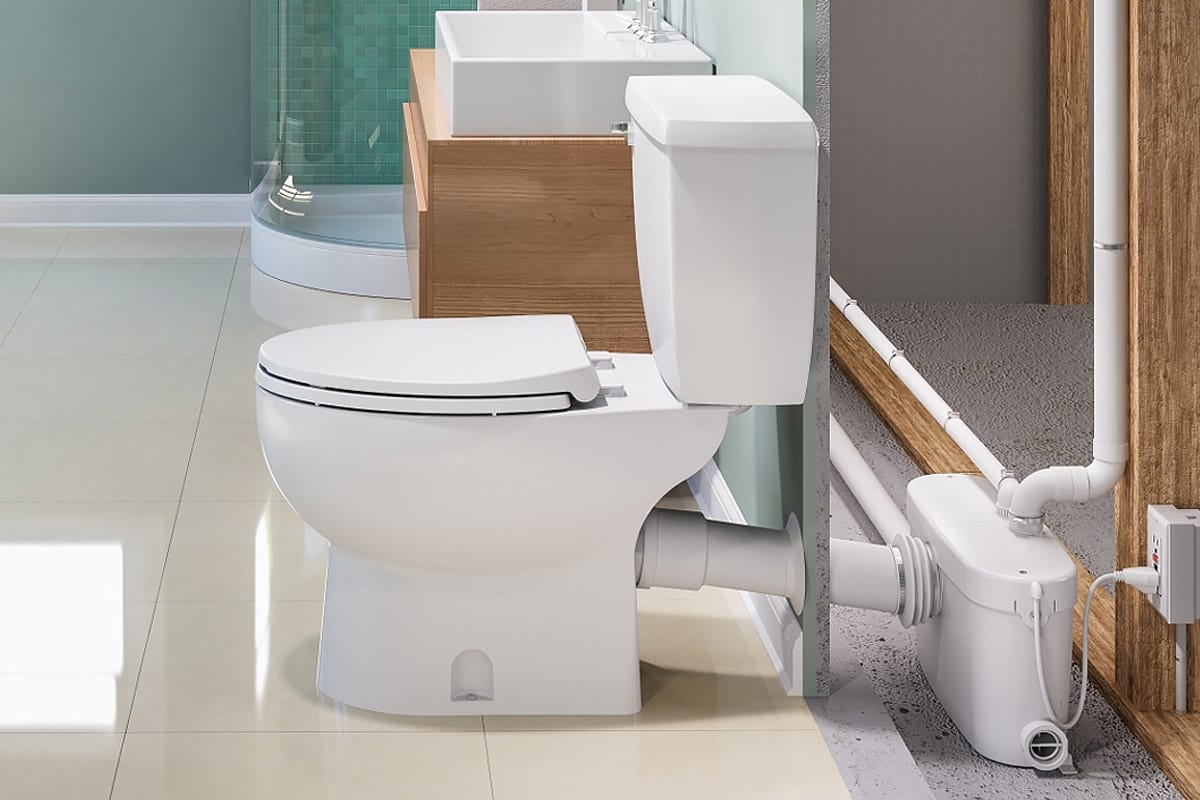
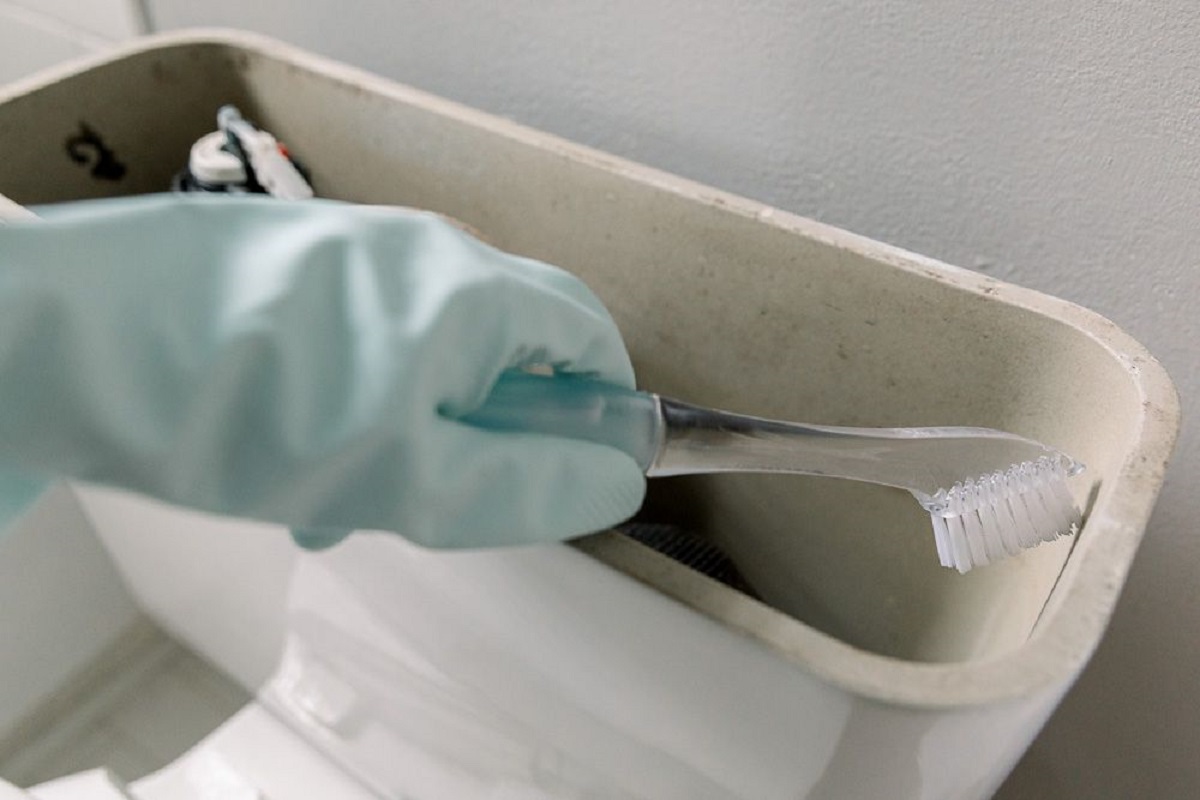

0 thoughts on “How To Clean A Toilet With Bleach”